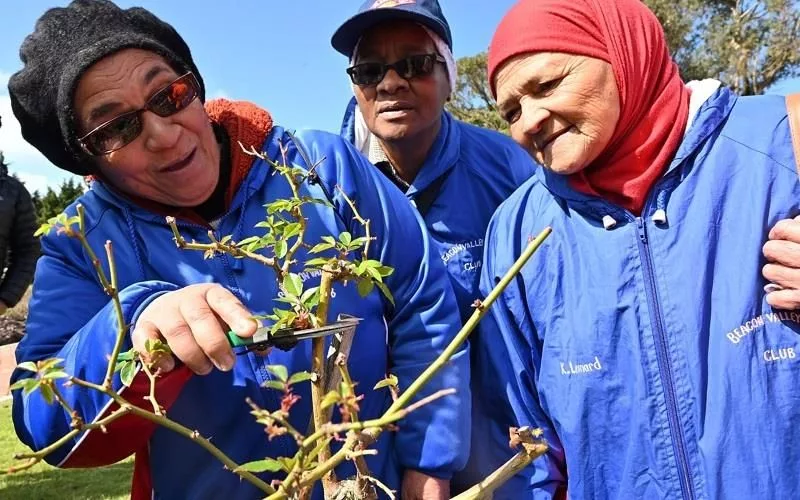South Africa’s energy sector is waiting anxiously for a crucial briefing by Minister Gwede Mantashe on TotalEnergies’ exit from offshore gas exploration blocks. The briefing will shed light on the inner workings of resource development, the business viability of offshore gas exploration in South Africa, and the legislative decision-making mechanism in the country. The meeting’s outcomes will be pivotal in shaping South Africa’s energy scene and influencing future decisions on resource development and economic strategy.
What is the importance of the upcoming briefing on TotalEnergies’ exit from South Africa’s offshore blocks?
The briefing by Minister Gwede Mantashe is crucial as it sheds light on the intricate inner workings of resource development and the economic feasibility of offshore gas exploration in South Africa. The retreat of a significant global energy market player like TotalEnergies raises questions about the business viability of such endeavors. The meeting is also anticipated to provide insights into the legislative decision-making mechanism in South Africa and how the nation tackles economic obstacles in strategic sectors like energy.
The Imminent Briefing and its Importance
Excitement and expectation saturate the South African political realm, as the Portfolio Committee on Mineral and Petroleum Resources sets the stage for a crucial briefing by the Minister, Mr. Gwede Mantashe, scheduled for Tuesday, 10 September 2024. The focal point of this briefing is likely to be the effect of the French multinational corporation TotalEnergies’ decision to retreat from two essential offshore blocks off South Africa’s Southern coast. In these blocks, known as Block 11B/12B and Block 5/6/7, TotalEnergies EP South Africa formerly held a considerable 45% and 40% stake, respectively.
On 29 July 2024, in a surprising event, TotalEnergies publicized its choice to exit the gas discoveries in Block 11B/12B, citing the departure of its project collaborator, CNRI, as the main cause. This action set off a ripple effect, causing the corporation to also withdraw from Block 5/6/7, where it had first ventured in 2013, unearthing two significant gas discoveries—the Brulpadda and Luiperd.
Despite these noteworthy discoveries, TotalEnergies clarified that turning these gas finds into profitable ventures proved more challenging than anticipated. The hurdles encountered were not just technical but also financial. The convoluted process of harnessing and trading the gas resources for the country’s market made the projects unprofitable.
The Briefing: A Revelation of Complex Dynamics
These offshore blocks, notwithstanding their importance to South Africa’s energy sector, bring to light the intricate inner workings of resource development and the economic feasibility of such endeavors. The upcoming briefing by Minister Mantashe is projected to offer insights into this intricate situation as well as the department’s legislative agenda and its timelines—a matter keenly anticipated by many.
The briefing will be conducted in Committee Room M514, situated on the fifth floor of the Marks Building within the Parliament precinct. The discourse is planned to occur between 09:30 and 13:00.
Implications for South Africa’s Energy Sector and Parliamentary Dialogues
This forthcoming meeting holds substantial connotations for South Africa’s energy sector. The retreat of TotalEnergies, a significant figure in the global energy market, triggers inquiries about the business feasibility of offshore gas exploration in the nation. It also highlights the delicate equilibrium between resource extraction and economic viability, a subject increasingly pertinent in the current climate of energy transition and economic unpredictability.
One unique aspect of South African parliamentary procedures is the privilege of free speech that the Members of Parliament (MPs) enjoy within the boundaries of parliamentary regulations. They are immune from prosecution, arrest, imprisonment or any expectation of compensation for anything they verbalize, present, or submit within Parliament or its committees. This freedom fosters an environment of open dialogue and constructive discussion, which is essential in periods of policy and economic volatility.
Meeting Outcomes and Legislative Decision-making Process
In addition to immediate impacts and conjecture, the forthcoming meeting and its results will provide a glimpse into the legislative decision-making mechanism in South Africa. It will illuminate how the nation addresses multifaceted economic obstacles, particularly in strategic sectors like energy.
The meeting is expected to have attendees beyond the Committee’s members, including interested individuals like Ms. Nomasonto Evelyn Motaung. She is associated with the African National Congress (National List) and is also affiliated with the Portfolio Committee on Justice and Constitutional Development.
As the Portfolio Committee on Mineral and Petroleum Resources gears up for this pivotal meeting, the country watches with anticipation. The repercussions of TotalEnergies’ exit and how South Africa tackles this predicament might potentially reshape the nation’s energy scene and influence future decisions on resource development and economic strategy.
1. What is the purpose of the upcoming briefing by Minister Gwede Mantashe?
The briefing by Minister Gwede Mantashe aims to shed light on TotalEnergies’ exit from offshore gas exploration blocks in South Africa, providing insights into the intricate inner workings of resource development, the business viability of offshore gas exploration, and the legislative decision-making mechanism in the country.
2. Why is TotalEnergies’ exit from South Africa’s offshore blocks significant?
TotalEnergies’ departure from South Africa’s offshore blocks raises questions about the business feasibility of offshore gas exploration in the nation, especially since it is a significant global energy market player. It also highlights the delicate balance between resource extraction and economic viability.
3. What are the potential implications of TotalEnergies’ retreat from South Africa’s offshore blocks on the nation’s energy sector?
TotalEnergies’ exit from South Africa’s offshore blocks may potentially reshape the nation’s energy scene and influence future decisions on resource development and economic strategy in the sector.
4. What is the legislative decision-making mechanism in South Africa?
The upcoming briefing by Minister Gwede Mantashe is expected to provide insights into the legislative decision-making mechanism in South Africa, particularly how the nation tackles multifaceted economic obstacles, particularly in strategic sectors like energy.
5. Who can attend the briefing and its outcomes?
The briefing is not limited to the Portfolio Committee on Mineral and Petroleum Resources’ members, and interested individuals, such as politicians and the public, may attend. The outcomes of the briefing may potentially shape South Africa’s energy sector and influence future decisions on resource development and economic strategy.
6. What is the importance of free speech in South Africa’s parliamentary procedures?
South African parliamentary procedures allow Members of Parliament (MPs) to enjoy the privilege of free speech within the boundaries of parliamentary regulations. This freedom fosters an environment of open dialogue and constructive discussion, essential in periods of policy and economic volatility.












